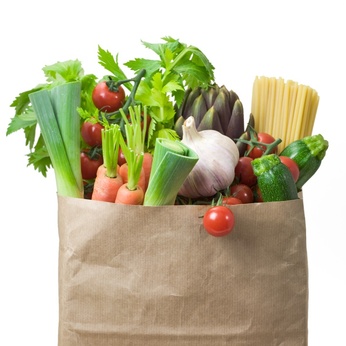healthy bytes: other reasons to go organic
Recently there has been a push in the US to highlight the “fact” that organic food is ‘no better for you than conventional food‘. According to Stanford University’s recent study – highly publicised by the media – there’s ‘little evidence of health benefits from organic foods‘. Hmm.
In response to these findings, Liz Oates (RMIT Health Sciences lecturer) claimed that the study missed the point of organic food. She pointed out that ‘most people who buy organic food buy it for what it doesn’t have rather than what it does have‘ and also that every organic food study conducted seems to find remarkably different results.
Nutrition aside, here are three other reasons to go organic if you can (afford it):
1. Organic produce is free from pesticides and fertilisers.
Who wants to eat chemicals? For a food to be classified as organic, it must be grown without treatment of pesticides or other harsh chemicals. There are many links found between chemicals in food and increased risk of immune deficiencies, especially in children. By avoiding the excess consumption of extra chemicals (especially antibacterial chemicals) you can strengthen your immune system. And if you’re unsure which organic foods to invest in, note that some fruits and vegetables are known to have more pesticide residue than others – here’s the list.
2. Organic meat comes from happier animals.
What do cows eat? Grass? Wrong! But they should. Beef cows are fed grains and often antibiotics, in order to fatten them up. More meat per cow = cheaper meat. Organic beef comes from cows that graze naturally in fields. Unlike conventional beef farmers, organic beef farmers aim to raise their cattle in a natural environment where they can act as cows would naturally. If you’re too scared to go vegetarian, perhaps think about buying organic meat?
3. Organic food cares for the environment.
Organic farming means less pollutants and toxic waste in the air and in the waterways. If that’s not enough, then think about how much power is used each year by those automatic pesticide-sprinklers and by the factories/laboratories that make the pesticides. Or the native plants, insects and birds that are unable to live nearby.
Do you often eat organic food? Why? Why not?


